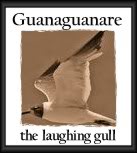Lively comments follow this article at the original source.
VS Naipaul does Trinidad a disservice...............................................................................................................................
The new government, free of racial divide, represents a modern Trinidad far from Naipaul's mocking contempt.
By Richard Sudan
UK Guardian | Thursday 10 February 2011
"The Caribbean island of Trinidad has produced no shortage of notable figures – from great thinkers such as its first prime minister Eric Williams and the social theorist CLR James, to legendary sports personalities such as the Olympic gold medal winner Hasely Crawford, the cricketer Brian Lara and the sprinter Ato Boldon.
The nation's diverse cultural makeup stems from its colonial past, with a population largely of Indian and African descent. One of the most recognisable sons of Trinidad is the writer and Nobel laureate VS Naipaul. In 2008 Naipaul was listed 7th in the Times's list of the greatest postwar British writers. He was knighted in 1989 and received the Nobel prize for literature in 2001.
His work draws from his experience of living in Trinidad. There is no doubting Naipaul's mastery of the English language and his ability to weave compelling narratives. But what becomes overwhelming when delving into the depths of his prose is a dark undercurrent of racism – an almost barefaced contempt for the people of his own country. This is not new and certainly not unique to Naipaul.
Trinidadians are more united than Naipaul depicts. They voted for the new People's Partnership coalition administration and Trinidad's first female prime minister Kamla Persad-Bissessar at the general election last year, from a desire to see change in the old political status quo rooted in Patrick Manning and the People's National Movement (PNM). The People's Partnership swept to victory through a renewed sense of identity and in a bid to see a political system reflective of the will of many, free from charges of corruption, and representative of all races in Trinidad.
The remaining racial divides are a hangover from the days of slavery and the British occupation. They reek of the inferiority complex that many Trinidanians had drummed into them from birth – and this is what Naipaul panders to in his novels Miguel Street (1959) and A House for Mr Biswas (1961), in which the underlying mockery of Indian Trinidadians is the defining thread. It leaves the reader with a bitter taste.
Such sentiments from Naipaul were not limited to Trinidad. The writer Paul Theroux, once a friend and protege of Naipaul, cited him during their time together in Africa as having "a fear of being swallowed by the bush, a fear of the people of the bush" – referring to Naipaul's fear of Africa and African people.
It is opinions like Naipaul's of Trinidad – and of Africa – that have been given the most attention. There is, however, another perspective, one that better sums up Trinidad and adheres more to the reality of life for its people – and how they feel about it.
My family's home is next to the house that Naipaul grew up in and used as the basis for A House for Mr Biswas. My late great-uncle, Roy Sudan, wrote an essay on life growing up in the street, published in the early 1990s. It paints a different picture of life and speaks of the sense of pride that Trinidadians feel toward their country, a pride felt in the warmth that resonates from the people of Port of Spain today. One extract from the essay best sums these sentiments up; Sudan, writing about the hustle and bustle of the city, speaks of "the friendly participation of every creed and race, especially when the suburb of St James celebrates our two cultural events, Hosay and carnival" – indeed, carnival celebrates independence from the British empire and Trinidadian pride. But Naipaul's writing has never reflected this.
We must challenge opinions such as Naipaul's, especially when they are indicative of wider views, which are only reinforced if they are taken seriously. We need to question any prejudice rewarded, especially by such a potent symbol of empire, the coloniser, which gave Naipaul a knighthood. Dealing with such controversial neocolonial views is paramount to changing people's perceptions."

A Note From The Gull
Thank you, Richard Sudan, for giving me the opportunity to wonder if what the world needs is yet another article about V.S. Naipaul's misrepresentation of the country of his birth. I am well aware that the only reason that Naipaul gets this attention is because he is something of a celebrity and we'd like to piggyback on that fame to use him as our cultural ambassador. It leaves us with egg on our faces when a famous son of the soil does not follow the "Trini to de bone" script but takes every opportunity to go down to the Thames with bar of blue soap and a paddle to wash our dirty linen in public.
I have, from my childhood, heard mere peons echo similar Naipaulean comments without knowing anything about Naipaul except that he was definitely not as relevant to their lives as was the East Indian shopkeeper selling them their poisons of choice. They lacked Naipaul's impeccable command of the Queen's English, but soared nevertheless in their own fashion upon the tongue loosening updrafts of puncheon spiked with the sheer joy of unchecked cussing. My home was a no-curse zone so I owe a debt of gratitude to these men who stood, swayed and then slumped onto the curb each Friday night as they celebrated the end of another week of backbreaking manual labour or mindless DEWD curb hacking or crippling unemployment. They could sum up Trinidad and Tobago without fear of contradiction. On many a night I would lie in my bed smiling into the darkness as their expletives cracked the air. Thanks to them, my inner canal conks and La Bas crab were stirred into early awakening.
I have never seen one article written about these men or their opinions about Trinidad and Tobago because they were not famous men. And what about the citizens of Trinidad and Tobago who silently half agree with Naipaul but feel compelled to publicly three quarters disagree? And what about the citizens of Trinidad and Tobago who don't have the luxury of raising their heads from bread and butter issues to give a damn about who denigrates or loves their country? Mister Naipaul is entitled to his opinions about the country of his birth and about any other country in the world. If his life experiences have lead him to this understanding of things, or if as some believe, he is pandering to a particular audience, what sense does it make to continue raking him over the coals.
I started reading Naipaul in secondary school because he was on the reading list and I thoroughly enjoyed his books. At that time I read A House for Mister Biswas, Miguel Street, the Mimic Men, Mystic Masseur and Mr. Stone and the Knights Companion. Naipaul's books never made me feel trapped or hopeless about Trinidad and Tobago. On the contrary, I felt that their message was always that as long as there was life in the mind, there would be hope.
So forgive me if I cannot understand why it is Mister Naipaul's commentary on this alleged "racial divide" in our country that should get the attention and not what the people who actually live in T&T think about the matter. Who is asking them for their opinions? Mister Naipaul is only one voice. It was Sat Maharaj who as recently as August last year spoke about that same racial divide and stated that a discussion should be had.
"He said the cultural and racial divide in this country is a discussion that must not be overlooked.I have no idea what cultural/racial divide exists in my country since I never experienced it myself or ever heard mention of it from the people of African or East Indian descent with whom I grew up. But I agreed with him that we should have the discussion to finally conclude whether this is just a convenient myth.
"It's a necessary discussion, we must have the discussion. People must understand. Were it not for the fact that this is a free country our culture will be suppressed," SOURCE
We should also ask ourselves if, when it comes to Mister Naipaul, we are not mistaking hot tabanca for cool contempt. I tend to believe that people continue to react negatively against real or perceived hurts/disappointments experienced over their lifetimes but especially in their formative years. I call this unfinished business tabanca and I think that Mister Naipaul has it bad.
"Patria est communis omnium parens" - Our native land is the common parent of us all. Keep it beautiful, make it even more so.
Blessed is all of creation
Blessed be my beautiful people
Blessed be the day of our awakening
Blessed is my country
Blessed are her patient hills.
Mweh ka allay!
Guanaguanare












2 comments:
Trinidadians like to think that everyone loves them. They live in blindness, that country is such in a deplorable state, I, like Sir Naipaul was happy to leave there. I couldn't even join a local evening football club because I was Indian, yet in England I was able too. Now you tell me, which country is better at that sport?
The public service in the country is terrible, the people are rude, there is widespread murder and kindnappings (majority being people of Indian descent, and the kidnappers being of African descent.)
And the previous person who commented said he does have any idea of what racial divide exists in that country, well just look at the kidnappings and see the ethnicity of the people being kidnapped and the ones doing the kidnapping.
I am happy I was able to make it out of there, go to school and get a good job and have a good life, I urge others to do the same, forget the whole 'I is a Trini' 'God is a Trini' and other such ignorant slogans and mae something of YOUR life.
Thanks, Anonymous, for your comment. Apologies for the late response. I did not visit the blog for a few days.
Apart from the author of the featured article, I was "the previous person" who made the comment that I was unaware of a racial divide. I spoke honestly from MY experience of T&T which I left when I was already an adult. Please excuse what was could have been a blissful ignorance and feel very free to enlighten me. I am glad that you are talking to me so that maybe you, as a person who identifies with one ethnic group and I, as a Trinbagonian who cannot identify with any ONE, can learn something from each other.
I will not address at this time all the points that you made, perhaps at another time. They deserve a careful response and I am just trying now to quickly reply to you.
It hurts me when I hear about any Trinbagonian being targeted for unfair treatment. It drives me to despair also because I tend to want to get to the bottom of things and I am deeply disappointed that these allegations are being made without even the promise of the clarification of public, sustained and impartial investigation. Witness the response to Nizam Mohammed's statements - an astounding criminalization of protest.
Congratulations on your successes. It is always refreshing to witness another human being realising his/her full potential, whether it is accomplished in Trinidad and Tobago or elsewhere.
Blessings
Post a Comment